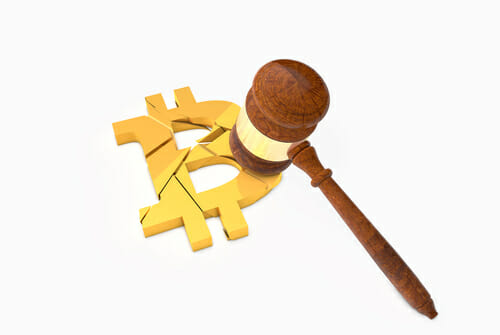The plan seeks to accelerate the trade financing procedure without expensive costs
Thailand’s government agency for tax collection will use blockchain technology and automatic learning to fight against tax evasion. Ekniti Nitithanprapas, Director General of the Revenue’s Department, detailed that blockchain technology will be used to verify if the taxes were paid correctly and accelerate the tax refund process.
A learning machine will be used to study how taxes are evaded, this gives the tax authority the ability to efficiently monitor tax fraud and create greater transparency. The main objective is to confirm what is really happening.
Since the time of his appointment, Nitithanprapas, who also was the International Economic Adviser at The Thailand Ministry of Finance in 2015, showed how important is the adoption of new technologies such as blockchain, in order to create a system of tax collection.
Torplus Yomnak, a researcher on corruption issues, said that this kind of technology could be used in public procurement; thus, it will promote transparency and accountability. “Blockchain could be used to promote the information’s transparency for the fight against corruption and to increase the power of research”, he explained.
According to the Office of Commercial Policy and Strategy, a department that belongs to the Ministry of Commerce, blockchain technology is considered as the solution that could reduce costs and accelerate the trade financing process while helping in the administrative aspects of the intellectual property’s rights.
A starting way
The exact date in which the department would test the blockchain-based project, and the way it would be done, still unknown. Thailand’s financial environment is currently increasing by including emerging technologies among its crucial procedures. This translates into a desire of growth as a country thanks to the opportunities that current technology offers.
The Department of Revenue has followed the Thailand Ministry of Commerce’s steps, which announced, on October 9th, that decentralization mechanisms would be included in important sectors, such as agriculture and commercial financing, as well as copyrights.
Pimchanok Vonkorpon, a Thai official from the Trade Policy and Strategy Office (TPSO) of Thailand, commented that the study is conducted with the help of The British Embassy in Bangkok. TPSO also wants to create test environments to apply blockchain in the rice export industry.
In September, Kasikornbank, Thailand’s fourth-largest bank, partnered with Visa’s B2B Connect to provide its customers solutions for cross-border payments using blockchain technology. Last October, Siam Commercial Bank, the oldest bank in that country, partnered with Accenture, which is a global consultancy with the aim of launching a platform for supply chains based on blockchain technology.
In India, The Reserve Bank (RBI) is also interested in establishing a special unit focused on emerging technologies, such as blockchain, cryptocurrencies, and artificial intelligence, although this financial institution took a strict approach to decentralized trade since the beginning of 2018.
Thailand and many countries are looking for different fields to use blockchain technology, in order to work for the development of their regions. From education, culture to business this platform is giving solutions thanks to its characteristics and its particularity of guarantee the integrity of data by all the network participants without having to resort to a trusted entity that centralizes the information.
By María Rodríguez











